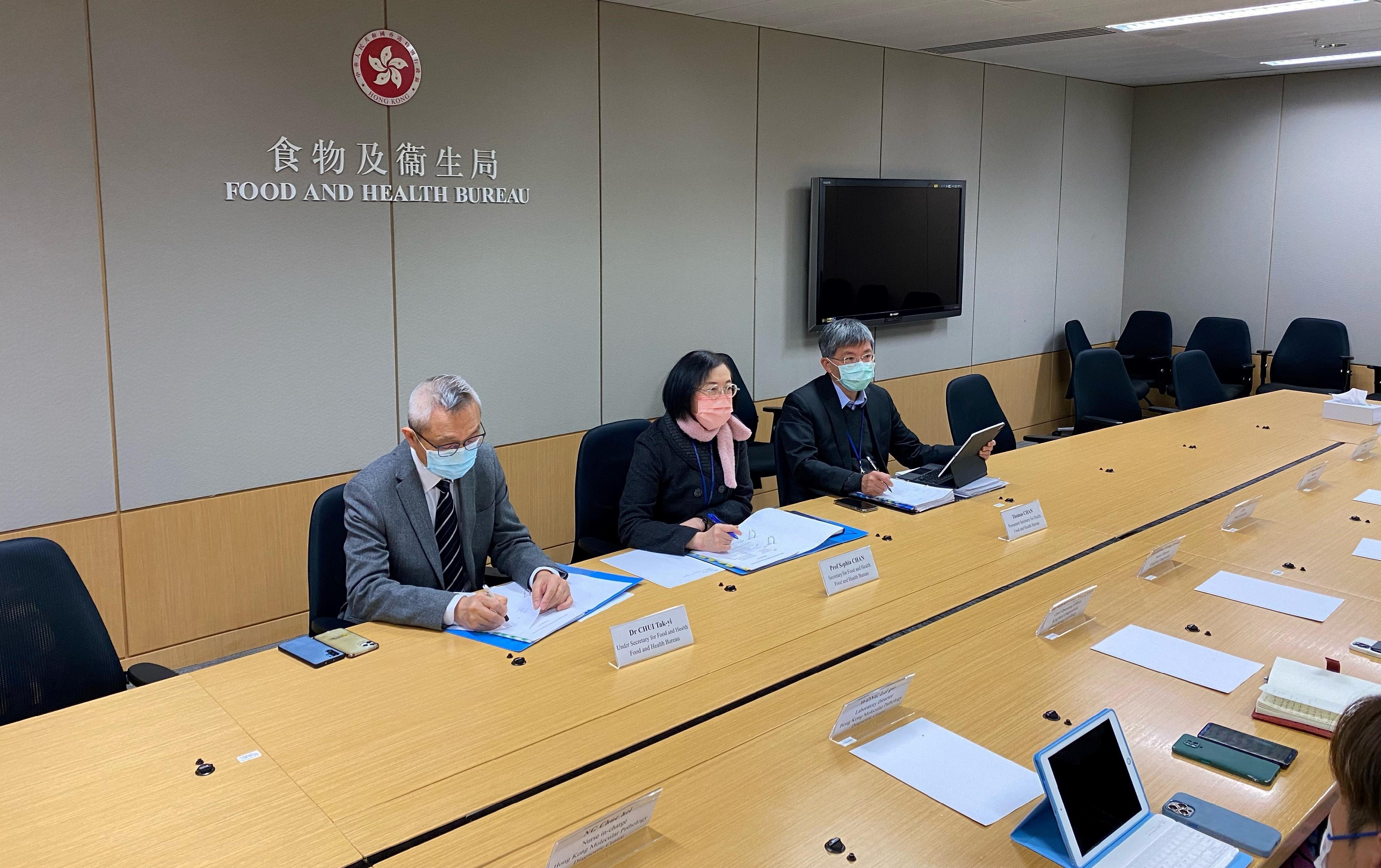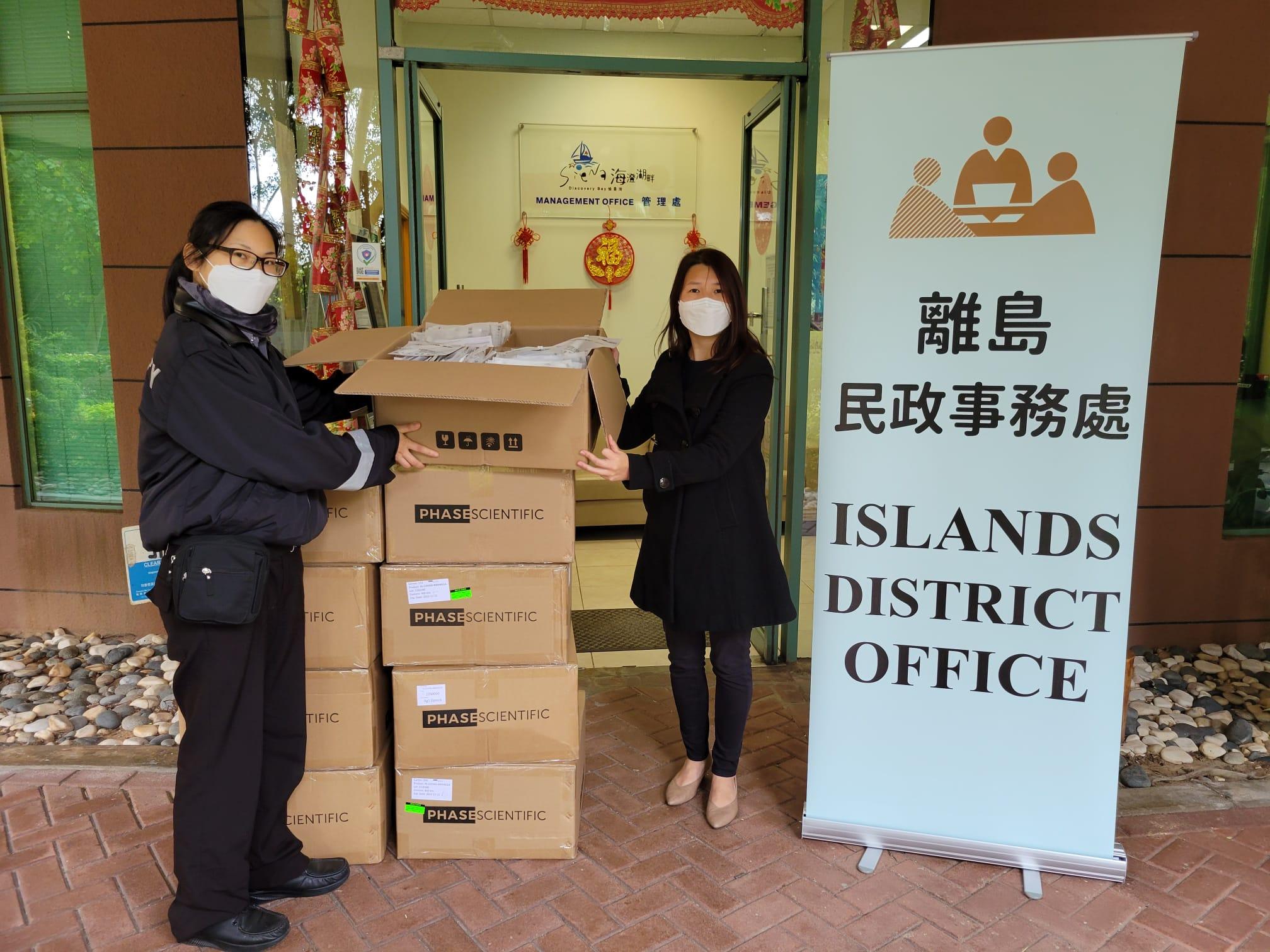SFH requests private testing service providers to significantly ramp up COVID-19 testing capacity (with photo)
​The Secretary for Food and Health, Professor Sophia Chan, had a meeting with several private testing service providers today (February 4) and requested them to ramp up their COVID-19 testing capacity with a view to coping with the testing demand arising from the Government's testing operations carried out as anti-epidemic measures and voluntary testing by members of the public.
At the meeting, Professor Chan; the Permanent Secretary for Food and Health (Health), Mr Thomas Chan; and the Under Secretary for Food and Health, Dr Chui Tak-yi, discussed with testing service providers how to further ramp up testing capacity including assistance for testing service providers in the aspects of manpower, resources and operation.
Professor Chan said, "The current epidemic situation in Hong Kong is of grave concern. Over 100 confirmed cases were recorded daily in the past few consecutive days, including dozens of cases with unknown sources, extending across various districts in the city and different industry sectors. We expect that the number of infected cases may show a significant increase after the Lunar New Year. The risk of having an exponential surge is very high. To prevent the epidemic situation from further deteriorating, the Government has the pressing need to roll out anti-epidemic initiatives through a multi-pronged approach including maintaining the most stringent social distancing measures to reduce flows of people and enhancing testing capacity for the virus significantly so as to cope with the 'restriction-testing declaration' operations, compulsory testing and voluntary testing. I hope that citizens could fully co-operate to work with us in achieving the objective of early identification, early isolation and early treatment.
"The testing demand arising from various testing operations by the Government and the voluntary testing of members of public has increased notably in the past few weeks. The testing capacity has also been raised accordingly. With the unfailing support from the testing service providers as well as the support of the Guangdong Provincial Government in the aspects of resources and manpower to enhance the testing capacity, the Government is aiming to further increase the daily maximum capacity of public and private laboratories from approximately 100 000 tests to about 200 000 tests or even higher before mid-February. We will also co-operate with a testing service provider to set up a dedicated laboratory at Ma On Shan Sports Centre, with a view to further increasing the daily testing capacity to 300 000 tests."
Profession Chan said that the Government would also adopt a more proactive testing strategy to identify patients and cut transmission chains in the community as early as possible in response to the epidemic development. She called for active co-operation from citizens in various testing operations.
Separately, the Home Affairs Department has distributed COVID-19 rapid test kits to residents in various districts during the past two weeks, enabling citizens to conduct voluntary testing.
She also said, as a reminder to the public, "We must stay highly vigilant and follow all prevention and anti-epidemic measures closely. Citizens should in particular pay attention to the premises included in the compulsory testing notices announced by the Government and undergo testing accordingly. If they consider themselves at higher risk or show any mild symptoms, they should undergo tests as soon as possible."
Lastly, Professor Chan expressed her heartfelt thanks to the testing service providers for their steadfast support for the Government in the past two years on the anti-epidemic front. Apart from running the community testing centres (CTCs), they have also from time to time deployed staff to set up mobile specimen collection stations in specific districts within short time frames in connection with the Government's anti-epidemic strategy. During the Lunar New Year holidays, all CTCs and mobile specimen collection stations provided testing services as usual to members of the public to fight the virus together.

